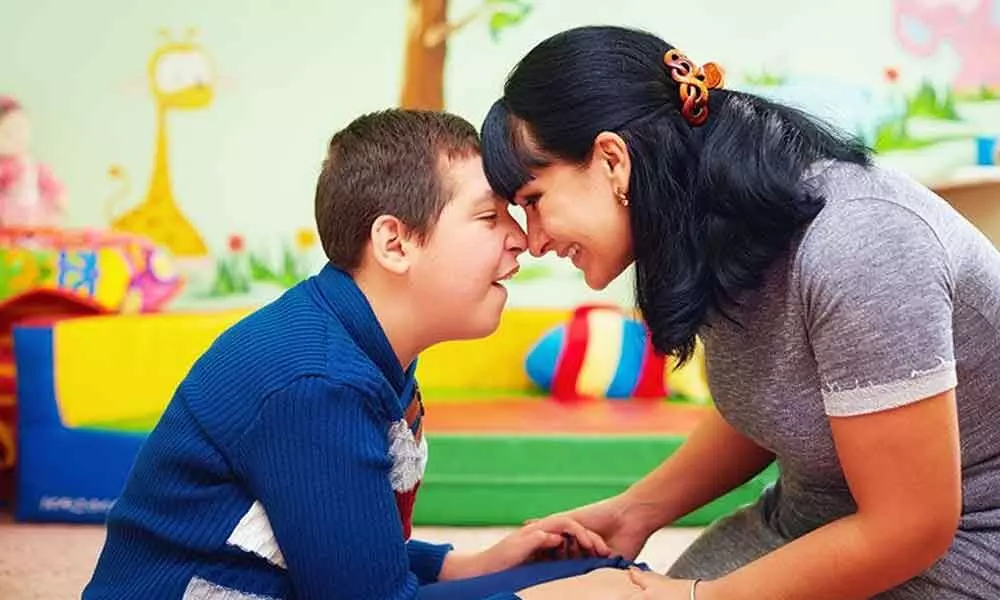5 approaches to deal with special children

(Picture used for representational purpose only)
Being a parent is a formidable commitment by itself; and raising a child with special needs adds herculean challenges along the way.
Being a parent is a formidable commitment by itself; and raising a child with special needs adds herculean challenges along the way. However, once you get a grasp of the situation, challenges, and process, it is exceptionally gratifying to watch your child cross each milestone successfully. The below counsel can be adopted for making the journey smooth and fruitful:
Understand your child
Parents need to start early and get on top of things. Have an unequivocal understanding of your child's diagnosis. It is important to seek professional evaluation and narrow down on the disability/illness/special need. This will enable you to draw up a course of action for your child and start at an early stage itself. Neurologically, the formative years are critical for the child's brain to repair or refract damaged pathways to re-learn and adapt.
Draw up a course of action
Expert diagnosis should help parents address critical questions such as:
• Impact on the child's self-development
• Impact on the child's ability to take care of himself/herself
• Analysis of the main issues the child's faces
• Various treatments available – physical, psychological, educational, therapeutic, etc.
• What are the modifications required of the rest of the family and the home
Based on the answers to these questions, it is important to draw up a course of action that is clearly communicated, delegated, and agreed on by each family member. This plan should address medical, educational, developmental, and mundane aspects.
Be realistic - Do not go at it alone!
Every family has its strengths and weaknesses. It is important to understand the collective strengths, use them to identify activities, and carry them out successfully. Identifying weaknesses is equally critical so that the family can fill these weak spots with outside help, special strategies, and professional advice. This decreases the juggling act and prevents burnout.
Stay positive and grow
Your child's best influence is his/her immediate family. Hence, it is important for the family to be optimistic and be mentally & physically healthy. Interacting with other parents with special children, support groups, and professionals will help alleviate difficult situations, provide reassurance and provide insight in tackling differing circumstances. It is important for parents to keep themselves updated with new developments and be proactive in advocating for their children.
Create consistency and joy
In the rigmarole of raising a special child, most parents overlook the most critical aspect – lending emotional & moral support to the child. Provide positive stimulation in their immediate environment by spending time with your child and focusing on the abilities rather than the disability. The family should be consistent in their message to the child. Keep it simple and constant - whether communicating expectations or lending the right encouragement or giving rewards. This reinforces the child with a coherent, harmonious message which is easy to comprehend and apply.
A parent's journey is a roller coaster beleaguered with intense trials as well as enriched with the tiniest successes. But always remember that while your child may grow to be an adult with a disability, he will be a wonderful person to be around, if nurtured with love, happiness, and respect.
(The author is a Psychiatrist)










